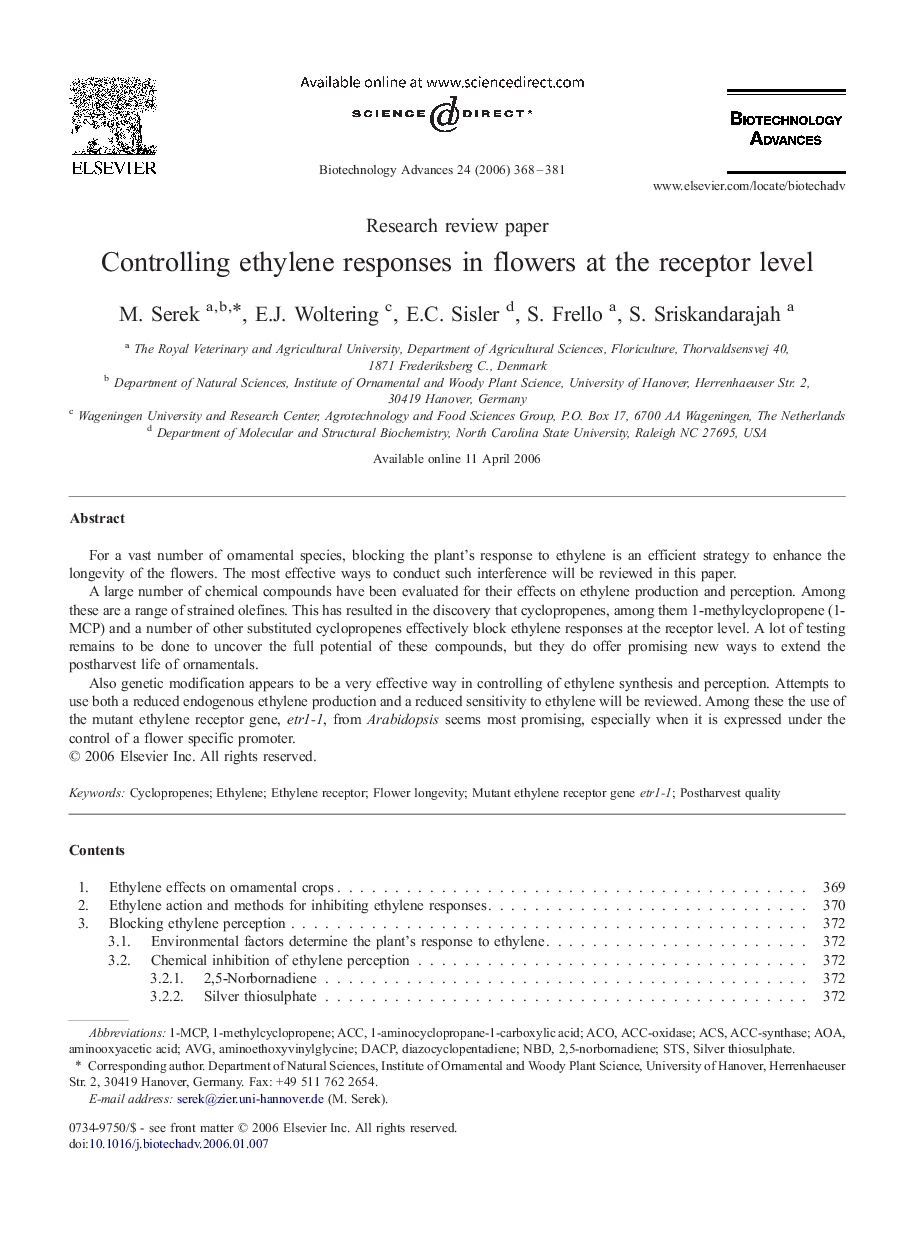| Article ID | Journal | Published Year | Pages | File Type |
|---|---|---|---|---|
| 14864 | Biotechnology Advances | 2006 | 14 Pages |
For a vast number of ornamental species, blocking the plant’s response to ethylene is an efficient strategy to enhance the longevity of the flowers. The most effective ways to conduct such interference will be reviewed in this paper.A large number of chemical compounds have been evaluated for their effects on ethylene production and perception. Among these are a range of strained olefines. This has resulted in the discovery that cyclopropenes, among them 1-methylcyclopropene (1-MCP) and a number of other substituted cyclopropenes effectively block ethylene responses at the receptor level. A lot of testing remains to be done to uncover the full potential of these compounds, but they do offer promising new ways to extend the postharvest life of ornamentals.Also genetic modification appears to be a very effective way in controlling of ethylene synthesis and perception. Attempts to use both a reduced endogenous ethylene production and a reduced sensitivity to ethylene will be reviewed. Among these the use of the mutant ethylene receptor gene, etr1-1, from Arabidopsis seems most promising, especially when it is expressed under the control of a flower specific promoter.
